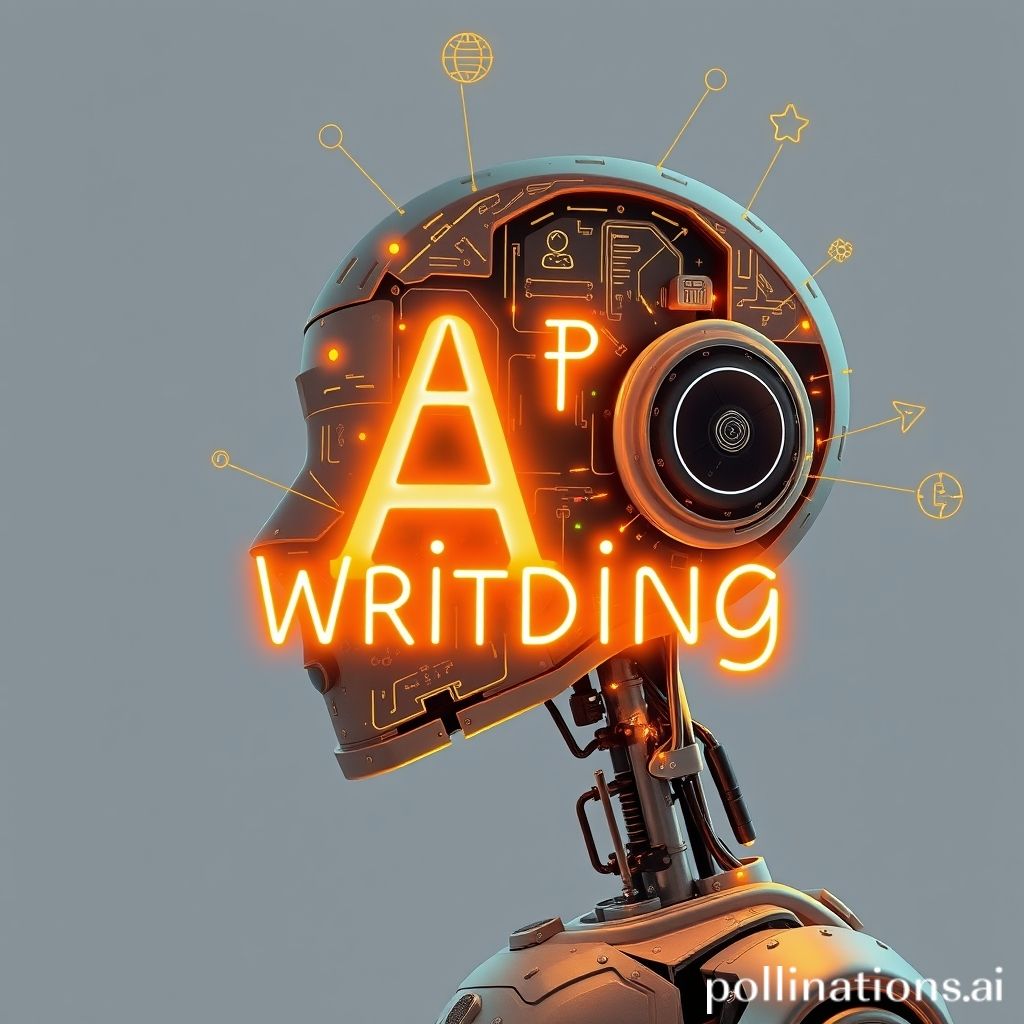Table of Contents
- Introduction
- Understanding AI in Content Creation: What’s all the Buzz About?
- AI-Powered Tools for Copywriting: Are They Really That Smart?
- Automated Workflows in Content Creation: Efficiency Over Creativity?
- Practical Use Cases: AI in WordPress and Beyond
- AI-Generated Content Quality: Can Machines Write Like Humans?
- The Role of AI Recommendations in Optimizing Content
- Ethical Concerns: Transparency and Authenticity in AI Writing
- Future Trends: What’s Next for AI in Copywriting?
- Conclusion
- Frequently Asked Questions
Introduction
In an era where technology is constantly evolving, the boundaries of artificial intelligence (AI) are being pushed further than ever before. One of the most fascinating areas of AI application is copywriting – a domain traditionally dominated by human creativity and emotion. Imagine a world where a digital pen could draft compelling articles, craft captivating slogans, and even engage readers with personalized content. Sounds intriguing, doesn’t it?
As AI tools become more sophisticated, the question arises: Can AI truly take over the nuanced craft of copywriting? In this article, we delve into the potential of AI in the realm of words, examining its capabilities, limitations, and implications for the future of storytelling.
Understanding AI in Content Creation: What’s all the Buzz About?
Alright, let’s dive into the world of AI in content creation. It’s a buzzing beehive of excitement, isn’t it? Think of AI as that mysterious magician who walks into the room and pulls a rabbit out of a hat. Only in this case, the rabbit is a perfectly crafted article or a snappy social media post. But what’s all this chatter really about? Well, AI in content creation means using artificial intelligence to generate written content. Imagine having a writing buddy who never sleeps and can pull out a Shakespearean sonnet at the drop of a hat!
Now, don’t get your knickers in a twist. While it sounds like something out of a sci-fi movie, AI tools are already sprinkling a bit of their magic across the internet. These tools can whip up blog posts, advertisements, and even poetry! Think of it as having a tireless apprentice who’s always ready to help.
But, hang on, does this mean writers should pack up their quills? Not so fast. Remember how the radio didn’t kill reading? Well, this could be a similar story. AI might just be the sidekick that nudges creativity into new realms, without replacing the human touch we all cherish.
AI-Powered Tools for Copywriting: Are They Really That Smart?
Imagine sitting at a cozy café, your fingers poised over the laptop keys, ready to conjure up words that dance off the screen. Suddenly, you wonder: Can AI pull this off too?
AI-powered tools for copywriting have been the talk of the town lately. These digital wizards promise to churn out engaging, error-free content faster than you can say ‘jack of all trades.’ With algorithms that can craft everything from blog posts to catchy ad slogans, it’s tempting to think they’re the superhumans of the writing world.
But here’s the kicker—are they really that smart? Sure, AI can spit out words in a heartbeat, but does it understand the nuances of human emotion or the irony in a joke? Take an old writer’s tale for instance: the quill of Shakespeare, if wielded by an AI, might pen sonnets with perfect meter yet lack the soulful whispers of a lover’s lament. It’s like getting a gourmet meal made by a robot chef—precise, maybe even delicious, but will it warm your heart the way grandma’s cooking does?
So while AI tools are handy, perhaps even essential in today’s fast-paced world, they still have some catching up to do. After all, the magic of storytelling is in the heart, not the hardware.
Automated Workflows in Content Creation: Efficiency Over Creativity?
Ever felt like you’re navigating through a maze when creating content? Automated workflows in content creation can be a godsend. They promise efficiency, making the process look like a well-oiled machine. Instead of burning the midnight oil, writers can breeze through mundane tasks. Imagine, no more toggling between tabs or tracking down that elusive document. It’s like having an invisible assistant who’s got your back.
But wait, there’s a catch! While automation shines in handling repetitive tasks, it often stumbles when it comes to creativity. It’s one thing to schedule posts, and quite another to craft words that sing, dance, and resonate with readers. An automated tool might churn out error-free content, but can it capture the magic of human touch? Picture a robot painting: efficient, sure, but does it evoke emotions?
Remember, while the caravan of technology rolls on, it doesn’t mean creativity is left in the dust. The essence of storytelling—empathy, nuance, and flair—is tough to automate. So, as automated workflows rev up, we find ourselves at the crossroads of efficiency and creativity, pondering over the road less traveled.
Practical Use Cases: AI in WordPress and Beyond
In the bustling digital world, AI’s stepping up its game, especially when it comes to WordPress and other platforms. It’s like having a trusty sidekick that never sleeps. Imagine this: You’re tight on a deadline. The clock’s ticking away, but AI’s got your back, whipping up content drafts faster than you can say ‘Jack Robinson.’ It’s not just about speed, though. AI tools can optimize SEO, suggest keywords, and even spot grammar gremlins that sneak past the human eye. It’s like having an editor, proofreader, and content strategist rolled into one.
Beyond WordPress, AI’s stretching its wings in areas like social media management and customer service. Remember that time you got an instant reply on a website chat? Chances are, an AI was behind it, solving problems faster than you could open a new tab. Some folks might say AI’s a bit like the Swiss Army knife of the digital realm—versatile and handy in a pinch. And it’s not just the big corporations benefiting; small businesses are harnessing AI to automate routine tasks, giving them more time to focus on the creative, human side of their work. So, from blog posts to tweets, AI’s making its mark, one keystroke at a time.
AI-Generated Content Quality: Can Machines Write Like Humans?
When it comes to AI-generated content, the big question is, can machines really write like humans? Picture this: a machine, tirelessly churning out words and sentences, trying to capture the essence of human thoughts and emotions. It’s like expecting a robot to mimic the warmth of a human handshake. Sure, AI can spit out content based on patterns and data it has been fed, but can it really understand the subtle nuances of language, the playful puns, or the depth of a heartfelt story? Ah, therein lies the rub.
AI can certainly produce content that is accurate and coherent, often dazzling us with its ability to string together facts and information. However, it’s the soul of the writing – the irony, the humor, the symbolic layers – that often gets lost in translation. Imagine reading a love letter drafted by a machine. It might hit all the right notes, but would it make your heart skip a beat?
As we venture down this road, it’s clear that while AI can be a powerful tool for generating content, capturing the human experience in words remains an art form that machines are still learning to perfect. The future might surprise us, but for now, the human touch in writing holds its unique charm.
The Role of AI Recommendations in Optimizing Content
Ever heard the saying, ‘Too many cooks spoil the broth’? Well, that’s sometimes true for content too. But what if one of those cooks is an AI that’s got your back? AI recommendations can act like a trusty sidekick, helping you optimize your content like never before. Imagine having a compass that always points to the best keywords, topics, and even suggests catchy phrases or sentences. It’s like having a genius brainstorming buddy who never tires and always has fresh ideas up its sleeve.
Now, let me tell you a little story. Picture a writer, overwhelmed with a looming deadline. They fire up their AI-powered tool, and voila, they’ve got suggestions that instantly spark creativity. With AI’s help, it’s as if the roadblocks vanish, and the path to brilliant content is clear as day. The AI doesn’t just recommend; it illuminates the way forward, shedding light on the tiniest details that make a huge difference.
Through rain and shine, AI can sift through mountains of data faster than a jackrabbit on caffeine, providing insights that’d take a human forever to gather. It’s not just fast; it’s razor-sharp, pinpointing precisely what your audience craves. In short, AI recommendations bring your content from ‘meh’ to magnificent, and that’s no exaggeration!
Ethical Concerns: Transparency and Authenticity in AI Writing
When it comes to AI stepping into the realm of copywriting, a couple of thorny issues pop up, like transparency and authenticity. Imagine picking up your morning paper, only to realize that those engaging headlines and heartfelt stories were spun by a machine. It feels a bit like biting into a chocolate chip cookie and finding out they’re raisins, doesn’t it? But hey, the worry isn’t just about feeling duped; it’s about trust being torn to shreds.
Transparency in AI writing means making it crystal clear when content is penned by algorithms. No cloak-and-dagger stuff. Readers deserve to know if a human heart or cold, hard code conjured up the words they’re reading. It’s about playing fair in the trust game. Remember the story of The Boy Who Cried Wolf? Once trust is broken, getting it back is like trying to put toothpaste back in the tube. Good luck with that!
Authenticity, on the other hand, is the soul of good writing. AI may churn out grammatically perfect prose, but can it capture the raw emotion, the quirks, the lived experiences of a human writer? It’s like comparing a factory-made sweater to one knitted by Grandma. Both keep you warm, but only one has that cozy, made-with-love feel.
Future Trends: What’s Next for AI in Copywriting?
Picture this: AI, the new star player in the copywriting arena, is strutting its stuff, dazzling everyone with its digital dexterity. But where’s it headed next? Well, folks, the future of AI in copywriting is like a rollercoaster, full of twists and turns. Buckle up!
Now, let’s dive into a world where AI tools are growing smarter every day. They’re not just spitting out text anymore; they’re crafting compelling narratives, almost like a seasoned storyteller. And guess what? They’re getting better at understanding our quirks and nuances. Imagine an AI whipping up a campaign that feels like it was penned by a human hand, maybe your favorite novelist or that quirky friend who always has the best catchphrases. Incredible, right?
Oh, there’s more. With AI’s knack for analyzing data in a flash, we’re looking at hyper-personalized content that hits the mark every single time. It’s like having a crystal ball that foretells what your audience craves before they even realize it themselves. Oh, the irony! Like a master chef knowing just the right ingredient to sprinkle in, AI’s future in copywriting promises a taste of perfection. What’s next? The sky’s the limit!
Conclusion
After exploring the vast capabilities and limitations of AI in copywriting, it’s evident that while AI can greatly enhance efficiency, the human touch remains irreplaceable. However, the hybrid approach of combining human creativity with AI’s speed and data-driven recommendations can catapult content creation to new heights. By leveraging advanced tools like WPHorde, content creators can stay ahead of the curve, harnessing the best of both worlds.
Don’t get left behind in the digital dust. Embrace the future of content creation with WPHorde and transform your copywriting workflow today. Click here to get started!

